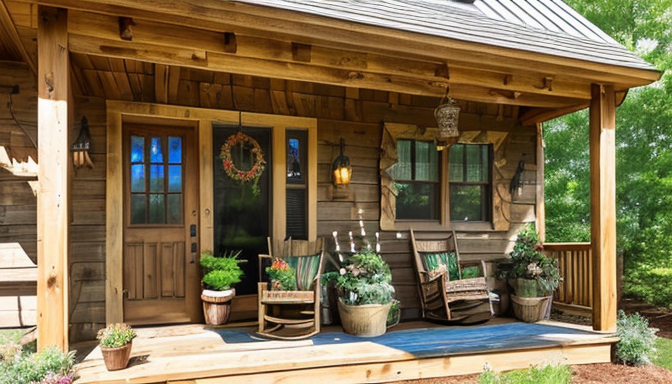When you think of the South, what comes to mind? Sweet tea, warm hospitality, and a way of speaking that feels like a warm hug. Southern slang is not just a collection of quirky phrases; it’s a rich tapestry woven from history, culture, and the unique experiences of the people who call this region home. Each word carries a story, reflecting the diverse influences of various cultures that have mingled over centuries.
From the rolling hills of Appalachia to the vibrant cities of New Orleans, Southern slang has evolved, absorbing elements from Native American languages, African dialects, and European settlers. This blending has created a vernacular that is as colorful as the landscapes of the South. For instance, phrases like “y’all” and “fixin’ to” are not just casual expressions; they embody a sense of community and belonging. They invite you in, making conversations feel more personal and engaging.
Moreover, the charm of Southern slang lies in its ability to convey warmth and humor. When someone says, “That dog won’t hunt,” they’re not just stating a fact; they’re using a metaphor that evokes imagery of a lazy dog and a missed opportunity. It’s a playful way of expressing skepticism that resonates deeply within Southern culture. So, whether you’re sipping sweet tea on a porch or chatting with a friend, remember that these words carry not just meaning, but a sense of identity and pride.
Origins of Southern Slang
The are as rich and diverse as the region itself. To truly appreciate these colorful expressions, one must take a journey through time, tracing the influences of various cultures, languages, and historical events that have shaped this unique vernacular. From the early Native American tribes to the European settlers, each group has left an indelible mark on the language we hear today.
For instance, the Southern dialect is heavily influenced by African American Vernacular English (AAVE), which has brought a wealth of creativity and rhythm to the language. Additionally, the Scots-Irish immigrants contributed a distinctive flair, merging their own dialects with the local vernacular. This blending of cultures has resulted in a tapestry of expressions that are not only unique but also deeply reflective of the Southern identity.
Moreover, the Southern slang is often a reflection of the region’s historical context and social dynamics. For example, terms like “y’all” (you all) and “fixin’ to” (about to) showcase the warm, inviting nature of Southern hospitality. These expressions are not just words; they embody a way of life and a sense of community that is quintessentially Southern.
Ultimately, understanding the origins of Southern slang offers a glimpse into the heart and soul of the South. It’s a reminder that language is a living, breathing entity that evolves with the people who use it, capturing their stories, struggles, and triumphs in every syllable.

Everyday Expressions
When you step into the heart of the South, you’ll quickly notice that language is a living tapestry, woven with the threads of history, culture, and personality. Southern slang is not just about the words; it’s about the feelings, the connections, and the stories that come with them. Take, for example, the phrase “y’all.” This simple contraction is more than just a way to say “you all”; it embodies the hospitality and inclusiveness that Southern folks are known for. It’s like an open invitation to join in on a conversation or a meal, making everyone feel welcome.
Another classic expression is “bless your heart.” This phrase can be both a genuine expression of sympathy or a cheeky way to call someone out on their foolishness—talk about versatility! It’s these nuances that make Southern slang so rich and layered. Consider how these phrases reflect the values and character of Southern communities:
- Warmth: Phrases like “come on over” or “let’s fix a plate” showcase the Southern tradition of sharing and caring.
- Humor: Expressions such as “crazy as a loon” or “full as a tick” bring a lightheartedness that’s infectious.
- Resilience: Sayings like “keep on keeping on” reflect the strength and determination of the Southern spirit.
In essence, every Southern expression is a window into the cultural nuances that define the American South. They tell stories of hardship, joy, and community, reminding us that language is not just about communication; it’s about connection.
Frequently Asked Questions
- What is Southern slang?
Southern slang refers to the unique expressions and phrases used in the Southern United States. It’s a vibrant mix of cultural influences that reflects the region’s history, humor, and warmth.
- Where does Southern slang come from?
The origins of Southern slang are diverse, stemming from a blend of Native American, African American, and European languages. Over time, these influences have melded together, creating a rich vernacular that tells the story of Southern identity.
- Why is Southern slang important?
Southern slang is not just about communication; it’s a cultural treasure. It captures the essence of Southern hospitality, humor, and community, making it a vital part of the region’s social fabric.
- Can I use Southern slang outside the South?
Absolutely! Using Southern slang can be a fun way to connect with others and share a bit of Southern charm. Just be mindful of your audience, as some expressions might need a little explanation!